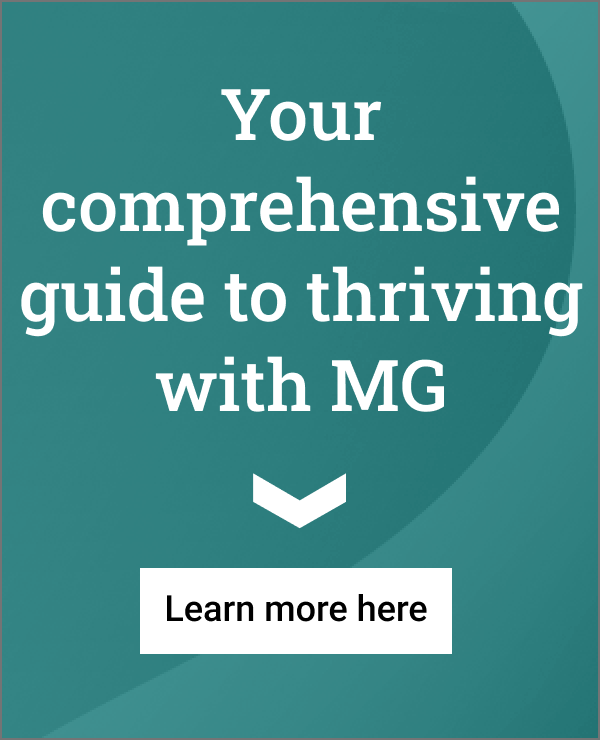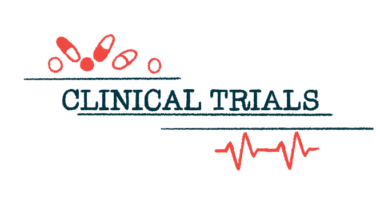Immunovant positions IMVT-1402 as lead MG treatment candidate
Registrational clinical trials may begin in 2025

Immunovant plans to prioritize development of its newer treatment candidate, IMVT-1402, over its Phase 3 candidate, batoclimab, for people with myasthenia gravis (MG), with tentative plans to launch a registrational clinical trial program of IMVT-1402 within the next year.
Registrational studies are those that can back a regulatory application for a treatment’s approval if they’re positive. But before making a final decision on the IMVT-1402 program, the company is waiting for topline results from an ongoing Phase 3 trial of batoclimab, which are due by March 2025.
The two therapies have a similar mechanism of action, but the company believes IMVT-1402 may have a more favorable overall therapeutic profile. Immunovant has not indicated plans to stop batoclimab’s development.
“We see tremendous opportunity for IMVT-1402, which we believe has a combination of potentially best-in-class features not seen with any other FcRn inhibitor,” Pete Salzmann, MD, Immunovant’s chief executive officer, said in a company press release. “Based on these convictions, as well as significant progress made with IMVT-1402, we are prioritizing the development of IMVT-1402 as our lead asset going forward.”
IMVT-1402 and batoclimab belong to a class of MG medications called neonatal Fc receptor (FcRn) blockers. FcRn is a protein that helps stabilize a family of antibodies called immunoglobulin G (IgG) that circulate in the bloodstream. The self-reactive antibodies that drive MG and many other autoimmune diseases belong to the IgG class.
Potential treatment for MG, other autoimmune conditions
Like approved therapies Vyvgart and Rystiggo, IMVT-1402 and batoclimab are designed to block FcRn, increasing the rate at which these harmful antibodies are broken down in order to ease MG symptoms. Both are given as subcutaneous (under-the-skin) injections.
IMVT-1402 is designed to bind to FcRn in a different way from batoclimab, enabling the same reduction in antibodies but avoiding a reduction in a protein called albumin. Drops in albumin can cause blood cholesterol levels to rise, which is a known risk of batoclimab.
In a Phase 1 clinical trial involving healthy adults, IMVT-1402 led to deep reductions in IgG levels with little to no impact on albumin or cholesterol.
Immunovant said it sees IMVT-1402 as a potential best-in-class treatment for MG, and a possible first-in-class treatment for a range of other autoimmune conditions marked by self-reactive IgGs.
The company said it recently met with the U.S. Food and Drug Administration (FDA) and is “on track to initiate 4 to 5 potentially registrational studies” for IMVT-1402 across multiple indications, including MG, by March 2025. By March 2026, it plans to have launched studies for 10 indications.
Meanwhile, the Phase 3 Flex Study (NCT05403541) is evaluating batoclimab against a placebo in about 240 adults with generalized MG (gMG).
In the first part of the trial, participants will be randomly assigned to receive subcutaneous injections of batoclimab (340 mg or 680 mg) or a placebo once weekly for 12 weeks. The main goal is to evaluate the effects of treatment on a patient-reported measure of disease severity.
Batoclimab-treated patients will then be re-randomized to receive 340 mg of batoclimab once every one or two weeks, or a placebo, in a second, maintenance phase of the trial. Participants who show a response to treatment may then enter a third, long-term extension phase.
The ultimate goal with batoclimab is to offer flexible, tailored dosing based on individual need.
A Phase 3 clinical trial (NCT05039190) conducted in China showed that batoclimab eased gMG symptoms and their impact on daily activities, consistent with findings from earlier Phase 2 studies.
Immunovant believes that lessons learned from batoclimab’s clinical development will help the company to more efficiently develop IMVT-1402.








